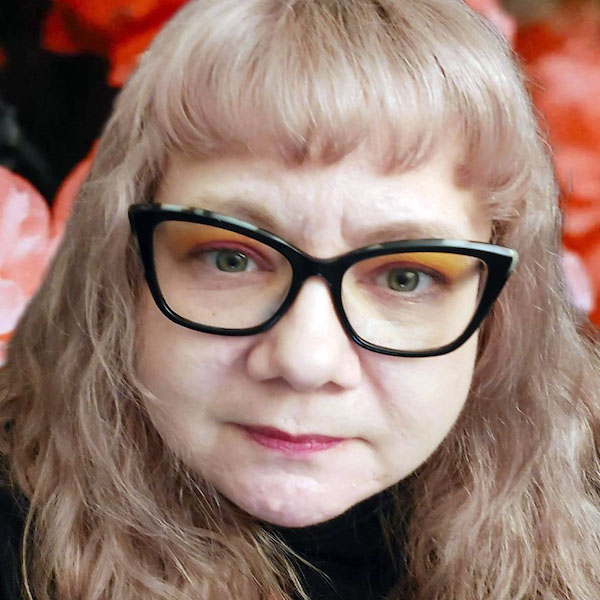Bonnie Russell, Project Manager

People often don’t recognize just how many jobs are filled by librarians that aren’t housed in libraries.
School of Information Sciences alumna Bonnie Russell is the project manager for MESH Research at Michigan State University, located in the College of Arts and Letters. Her main responsibility is the Humanities Commons platform, which also runs a number of organizational and institutional commons. The Commons provides all users with digital profiles, groups for collaboration, free WordPress-based websites and an open access repository called CORE.
Russell recently co-authored an open educational resource (OER) for library and information science (LIS) students and librarians. Publishing Values-based Scholarly Communication is now part of the Scholarly Communication Notebook.
The focus of the OER is primarily on the underrepresented area of publicly engaged scholarship. It addresses a wide range of MLIS students and LIS professionals based at universities, especially those whose mission explicitly encompasses engaged scholarship initiatives. The resource also spotlights publicly engaged publishing initiatives that provide examples of scholarly communications projects with social justice values such as equity, access, fairness, inclusivity, respect, ethics and trust deeply embedded in their design.
Russell is a two-time Wayne State grad, with a bachelor’s degree in film studies/minor in theater and a master of library and information science. As a student, Russell was a student representative for the school’s Administrative Concerns Committee and was involved in the American Library Association (ALA) and National Digital Stewardship Alliance (NDSA) student groups.
Q. What was your path to the field of information sciences? What drew you to the profession?
A. After finishing my undergraduate degree, I worked as a project manager in the private sector including almost 10 years in the automotive industry. In the early 2010s I decided to make a move and joined the Wayne State University Press as their technical project manager. As I collaborated with the technical librarians at the WSU libraries, I realized that what I was doing on the front end in the publishing process was very similar to what they were doing on the other end of that process in the library.
It makes sense now that I would become a librarian. I was always in the library as a child and was a student library assistant in high school for several years. At the time I decided to start the program I was heavily involved in the production of metadata and eBooks while at the Press. It became obvious to me that an MLIS would be a great way to increase my knowledge and further my career.
Q. What do you like best about your current job?
A. I love the variety of work I undertake. I am doing more than just project management – I also engage in both user experience (UX) research and design, I routinely work on metadata schema and other repository-focused work as we move CORE to the InvenioRDM platform, and I do several workshops and speaking engagements both at MSU and in the wider community.
Q. Why did you choose Wayne State’s School of Information Sciences?
A. As a Wayne State employee, I got a tuition break, but the truth is that I did research other programs. Ultimately, I liked the information management/UX track offered at WSU, and I had met and liked many of the instructors.
Q. How did the program prepare you for your current role?
A. I do quite a lot of UX work in this role, so things like human/computer interaction and information architecture have been huge for me in understanding how to navigate the current reorganization and rebuild of the platform. Information visualization was also a big help in creating user-facing infographics and materials. I have reached out a few times since graduation to Dr. Zhang, who has been kind enough to answer questions and point me in the direction of resources on UX research.
While my day job is more focused on project management and UX, I continue to work on other library-related projects independently. In January 2023 my co-authors Kath Burton (Routledge, Taylor & Francis), Catherine Cocks (Syracuse University Press), and I released our first OER, Publishing Values-based Scholarly Communication, for MLIS students and librarians who are engaged in support of scholars and groups doing publicly engaged research.
Q. What was a highlight of your time in the program?
A. I was a student representative on the SIS administrative concerns committee (2019-2020) where I got to know instructors outside of my track as well as SIS staff. It felt great to contribute to the program in that way, and I got to learn a lot about the administrative end of the program. It was eye opening to see the work that’s done behind the scenes whether it’s managing the many scholarships to the decisions on future initiatives.
Q. What do you feel is the most important or surprising thing you've learned about the LIS field?
A. I think people don’t recognize just how many jobs are filled by librarians that aren’t housed in libraries. I’m the “resident librarian” on my team and I take responsibility for the CORE repository. I don’t work in a library, but I’m still actively involved in the profession and continue to participate in organizations such as the ALA and the Digital Library Federation’s accessibility working group.
Q. What advice would you give current and/or prospective students?
A. Be open. There is so much to librarianship. There may be aspects you’ve never considered, or a class may spark a new wave of interest and uncover new talents. Given the current climate around libraries and access to information our roles have never been more important in trying to ensure access to information for all. Libraries are lifelines for many, and they were for me as a relatively poor kid growing up. Whether you’re going to be a public librarian, a school librarian, an academic librarian, an archivist, or go into a less traditional role, you will make an impact.